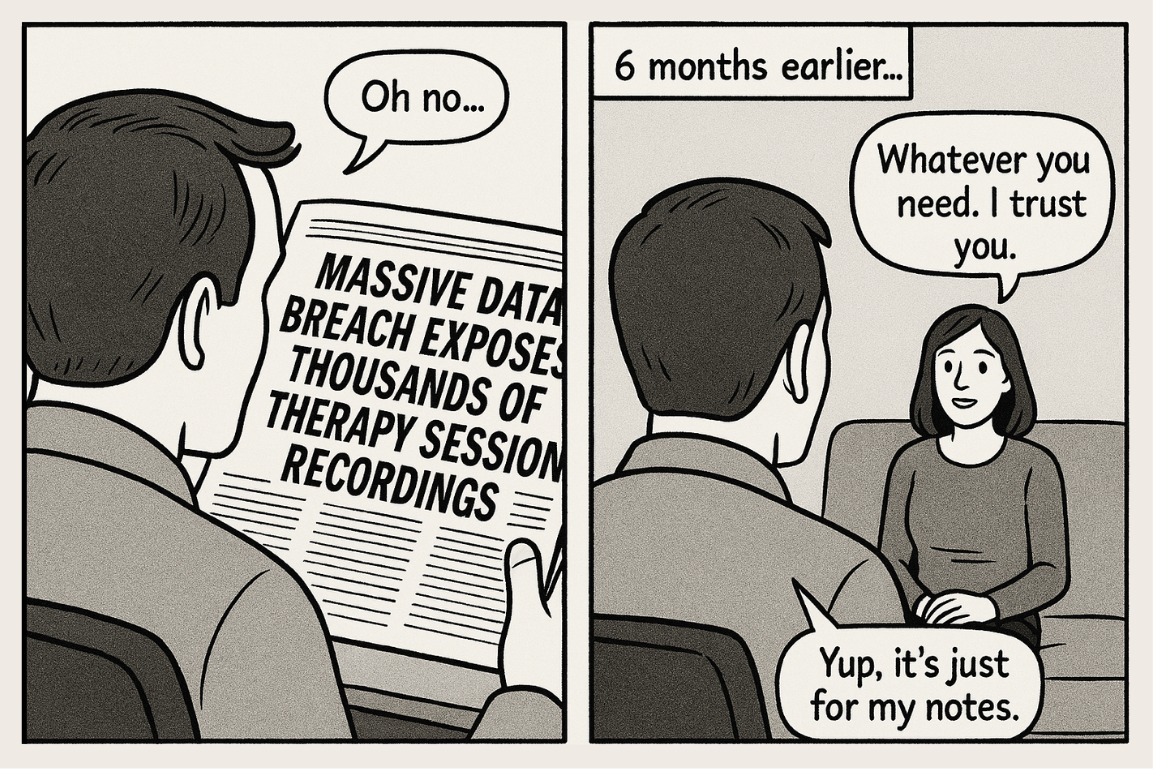
Before you hit "record" on a therapy session, ask yourself:
- Who carries the real risk if this ever gets leaked?
- Who stands to be hurt the most?
Client consent isn’t a shield. Recording is the therapist’s decision -- but the fallout lands on the client. Maybe not today, but next week, next year, or further down the line.
Think of what's discussed in a therapy session. So many private details. So many thoughts that are being shared with the therapist in confidence, perhaps having never been shared aloud before. It's a sacred and safe space -- or it should be.
It might be marketed as just a simple button click, but recording a session and sending that recording elsewhere is a big decision. Unless it's absolutely necessary, perhaps it's not worth the risk.
This is why Jen and Jon at Quill believe strongly that therapists should not be recording their sessions. We totally get that documentation is a burden and requires too much time -- and that technology could help solve some of those problems. But it's not necessary to have a recording of a session to save time on notes (as the users of Quill can confirm), and so this risk is not worth it. There is a better way.
PS -- Jon posted this on LinkedIn as well, if you'd like to weigh in with your thoughts regarding client consent and AI scribes for therapy!